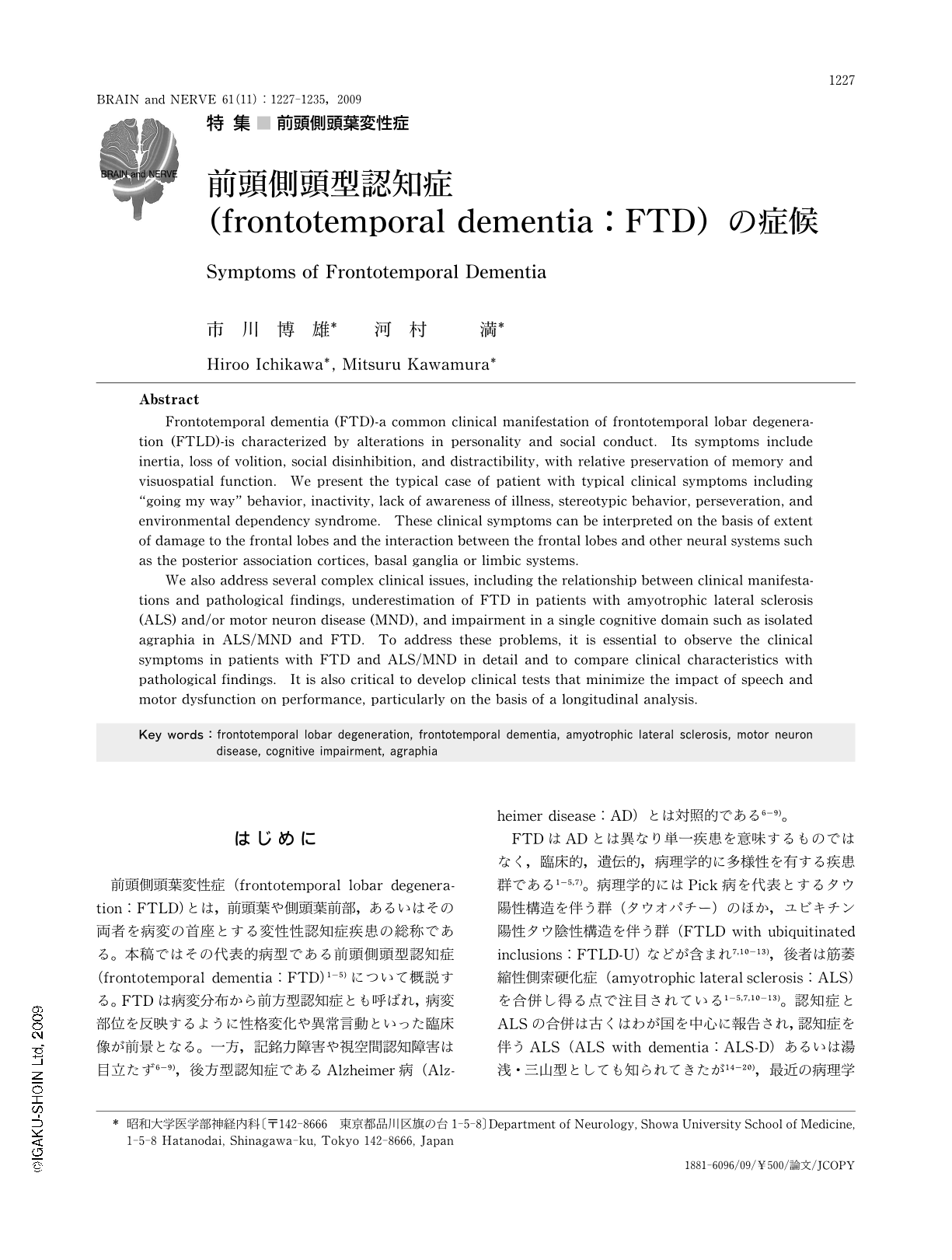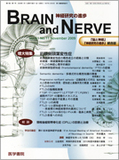Japanese
English
- 有料閲覧
- Abstract 文献概要
- 1ページ目 Look Inside
- 参考文献 Reference
はじめに
前頭側頭葉変性症(frontotemporal lobar degeneration:FTLD)とは,前頭葉や側頭葉前部,あるいはその両者を病変の首座とする変性性認知症疾患の総称である。本稿ではその代表的病型である前頭側頭型認知症(frontotemporal dementia:FTD)1-5)について概説する。FTDは病変分布から前方型認知症とも呼ばれ,病変部位を反映するように性格変化や異常言動といった臨床像が前景となる。一方,記銘力障害や視空間認知障害は目立たず6-9),後方型認知症であるAlzheimer病(Alzheimer disease:AD)とは対照的である6-9)。
FTDはADとは異なり単一疾患を意味するものではなく,臨床的,遺伝的,病理学的に多様性を有する疾患群である1-5,7)。病理学的にはPick病を代表とするタウ陽性構造を伴う群(タウオパチー)のほか,ユビキチン陽性タウ陰性構造を伴う群(FTLD with ubiquitinated inclusions:FTLD-U)などが含まれ7,10-13),後者は筋萎縮性側索硬化症(amyotrophic lateral sclerosis:ALS)を合併し得る点で注目されている1-5,7,10-13)。認知症とALSの合併は古くはわが国を中心に報告され,認知症を伴うALS(ALS with dementia:ALS-D)あるいは湯浅・三山型としても知られてきたが14-20),最近の病理学的新知見の集積によって,FTLD-U,ALS,ALS-Dは同一病態の異なる表現型である可能性が指摘されている7,10-13)。病理学的知見については他稿を参照していただき,本稿ではFTDの自験例を提示しつつその臨床像について概説する。
Abstract
Frontotemporal dementia (FTD)-a common clinical manifestation of frontotemporal lobar degeneration (FTLD)-is characterized by alterations in personality and social conduct. Its symptoms include inertia, loss of volition, social disinhibition, and distractibility, with relative preservation of memory and visuospatial function. We present the typical case of patient with typical clinical symptoms including "going my way" behavior, inactivity, lack of awareness of illness, stereotypic behavior, perseveration, and environmental dependency syndrome. These clinical symptoms can be interpreted on the basis of extent of damage to the frontal lobes and the interaction between the frontal lobes and other neural systems such as the posterior association cortices, basal ganglia or limbic systems.
We also address several complex clinical issues,including the relationship between clinical manifestations and pathological findings,underestimation of FTD in patients with amyotrophic lateral sclerosis (ALS) and/or motor neuron disease (MND),and impairment in a single cognitive domain such as isolated agraphia in ALS/MND and FTD. To address these problems,it is essential to observe the clinical symptoms in patients with FTD and ALS/MND in detail and to compare clinical characteristics with pathological findings. It is also critical to develop clinical tests that minimize the impact of speech and motor dysfunction on performance,particularly on the basis of a longitudinal analysis.

Copyright © 2009, Igaku-Shoin Ltd. All rights reserved.


